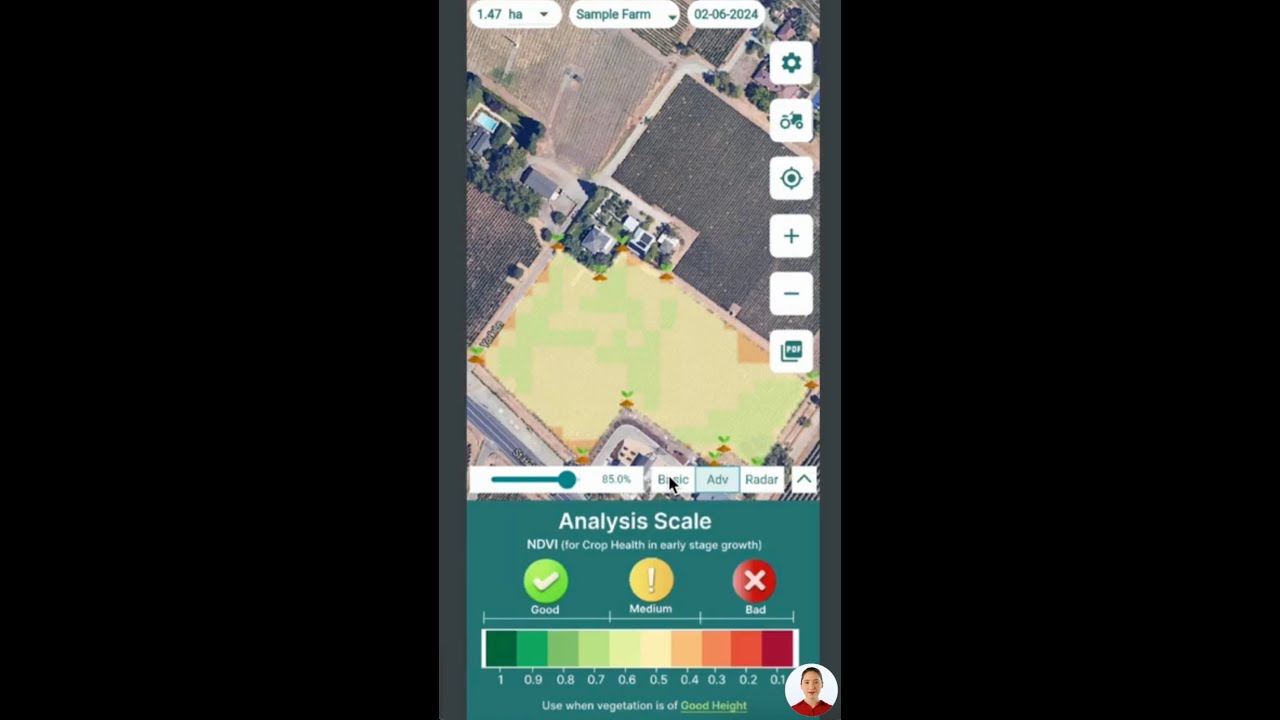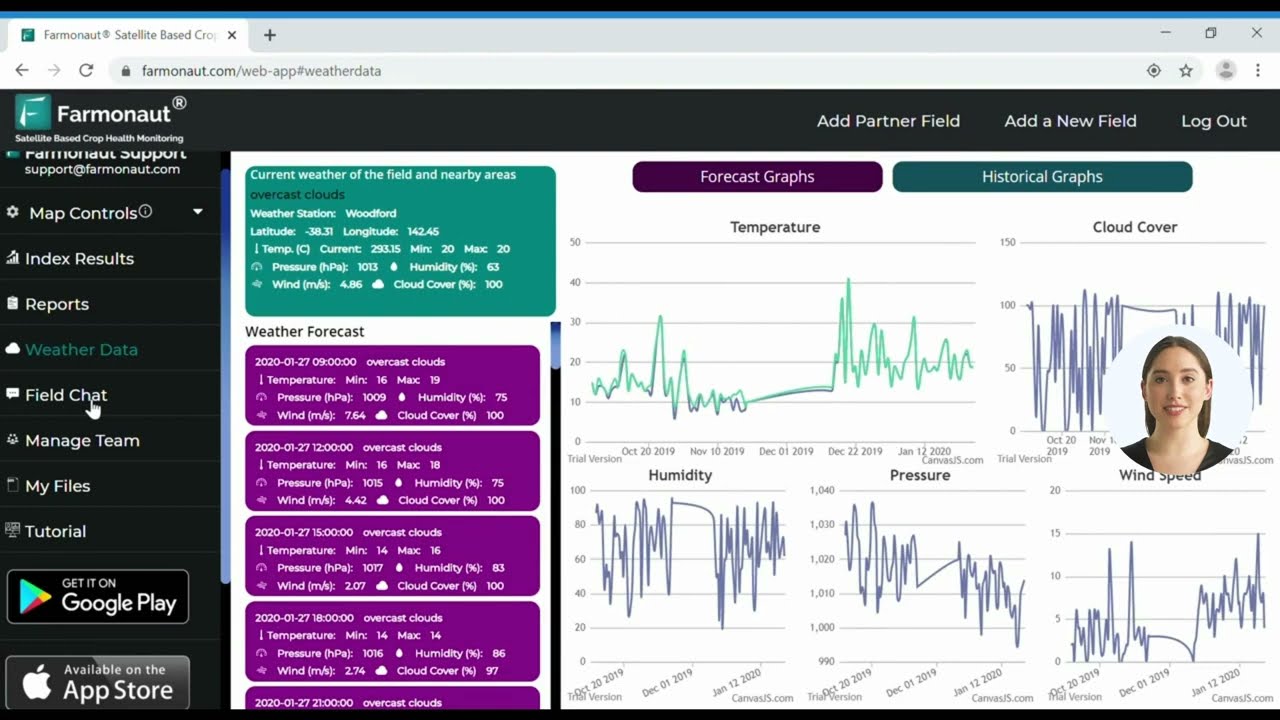Unlock Your Agricultural Career: Latest SRF, JRF, and Research Opportunities in India’s Top Institutes

“India’s top agricultural institutes offer over 50 different types of research fellowships and job positions.”
Welcome to our comprehensive guide on the latest agricultural job opportunities and research fellowships in India! As the agricultural sector continues to evolve with technological advancements and sustainable practices, the demand for skilled professionals in various agricultural disciplines is on the rise. In this blog post, we’ll explore a wide range of exciting career prospects for both fresh graduates and experienced professionals in the field of agriculture and horticulture.
Whether you’re aspiring to become a Senior Research Fellow (SRF), Junior Research Fellow (JRF), or seeking other research positions, we’ve got you covered with information on the most recent openings across India’s prestigious agricultural universities and institutes. From agronomy to plant biotechnology, crop science to food engineering, we’ll delve into the diverse career paths available in the agricultural sector.
The Growing Landscape of Agricultural Research in India
India’s agricultural research landscape is constantly expanding, offering a plethora of opportunities for those passionate about contributing to the nation’s food security and agricultural advancements. Let’s take a closer look at some of the key areas where research positions are in high demand:
- Agronomy: Research in crop production and soil management
- Plant Biotechnology: Genetic improvement of crops for enhanced yield and resistance
- Entomology: Study of insects and their impact on agriculture
- Plant Pathology: Research on plant diseases and their control
- Horticulture: Cultivation and management of fruits, vegetables, and ornamental plants
- Agricultural Engineering: Development of innovative farming technologies and machinery
- Food Technology: Research on food processing, preservation, and safety
As we delve deeper into these opportunities, it’s important to note that the agricultural sector is rapidly embracing technology to enhance productivity and sustainability. One such innovative platform is Farmonaut, which offers advanced satellite-based farm management solutions. Their  provides valuable insights for precision agriculture.
provides valuable insights for precision agriculture.
Senior Research Fellow (SRF) Positions: Advancing Agricultural Knowledge
Senior Research Fellow positions are highly sought after by those who have completed their postgraduate studies and have some research experience. These roles often involve leading research projects, mentoring junior researchers, and contributing significantly to agricultural advancements. Here are some key aspects of SRF positions:
- Qualification: Usually requires a Master’s degree in the relevant agricultural discipline with at least two years of research experience
- Duration: Typically 2-3 years, with the possibility of extension based on performance
- Responsibilities: Conducting independent research, assisting in grant writing, publishing research papers, and presenting findings at conferences
- Institutions: Opportunities available at ICAR institutes, State Agricultural Universities, and other research organizations across India
For those interested in cutting-edge agricultural technology, Farmonaut’s API offers access to satellite and weather data, which can be invaluable for agricultural research projects.
Junior Research Fellow (JRF) Opportunities: Starting Your Research Journey
Junior Research Fellow positions are excellent starting points for fresh postgraduates looking to build a career in agricultural research. These roles provide hands-on research experience and the opportunity to work on important agricultural projects. Key features of JRF positions include:
- Qualification: Typically requires a Master’s degree in the relevant agricultural field
- Duration: Usually 2-3 years, with the possibility of promotion to SRF based on performance
- Responsibilities: Assisting in research projects, data collection and analysis, literature reviews, and report writing
- Skill Development: Opportunities to learn advanced research methodologies and use state-of-the-art equipment
For those interested in mobile applications in agriculture, Farmonaut offers both  and
and  platforms for easy access to agricultural insights.
platforms for easy access to agricultural insights.
Research Associate Positions: Bridging Academia and Industry
Research Associate roles are often more specialized and can serve as a bridge between academic research and industry applications. These positions are suitable for those with significant research experience and a Ph.D. in their field. Key aspects include:
- Qualification: Ph.D. in the relevant agricultural discipline or equivalent research experience
- Focus Areas: Often involve working on industry-sponsored projects or government initiatives
- Career Growth: Can lead to permanent research positions in academia or industry roles
- Interdisciplinary Opportunities: Many positions involve collaboration across different agricultural disciplines
Project-Based Temporary Positions: Gaining Diverse Experience
Many agricultural institutes offer temporary positions tied to specific research projects. These roles can be an excellent way to gain diverse experience and build your network in the agricultural research community. Key features include:
- Duration: Typically aligned with the project timeline, ranging from a few months to a couple of years
- Flexibility: Opportunity to work on various projects and in different locations
- Skill Enhancement: Exposure to different research methodologies and agricultural technologies
- Networking: Chance to collaborate with researchers from various institutions and backgrounds
“Agricultural career opportunities span across 20+ states in India, including Punjab, Gujarat, and Tamil Nadu.”
Government Recruitments in Agriculture: Stable Career Paths
Government agencies and institutions regularly recruit for various positions in the agricultural sector. These roles offer stability and the opportunity to contribute to national agricultural policies and programs. Key aspects include:
- Diversity of Roles: Positions range from research scientists to extension officers and policy advisors
- Examination Process: Many positions require clearing competitive exams like ICAR NET or UPSC
- Job Security: Government positions often offer long-term job security and benefits
- Impact: Opportunity to work on projects that directly impact farmers and agricultural practices across the country
For those interested in the technological aspect of agriculture, Farmonaut’s API Developer Docs provide insights into how satellite data can be leveraged for agricultural research and applications.
Opportunities in Agritech and Food Engineering
With the growing intersection of technology and agriculture, there’s an increasing demand for professionals who can bridge these fields. Agritech and food engineering positions offer exciting opportunities to innovate and solve complex agricultural challenges. Key areas include:
- Precision Agriculture: Developing and implementing technologies for optimized farming practices
- Data Analytics in Agriculture: Analyzing big data to improve crop yields and farm management
- Food Processing Technology: Innovating in food preservation, packaging, and quality control
- Agricultural Robotics: Designing and developing automated systems for farming operations
Regional Opportunities: Agricultural Research Across India
India’s diverse agro-climatic zones offer a wide range of research opportunities across different regions. Let’s explore some key areas:
Punjab Agricultural University (PAU), Ludhiana
Known for its cutting-edge research in wheat and rice cultivation, PAU offers numerous positions in crop improvement and sustainable farming practices.
Gujarat Agricultural University (GAU)
With a focus on arid and semi-arid agriculture, GAU provides opportunities in drought-resistant crop development and water management research.
Tamil Nadu Agricultural University (TNAU), Coimbatore
TNAU is renowned for its research in tropical agriculture, offering positions in areas like plantation crops, horticulture, and agricultural biotechnology.
Indian Agricultural Research Institute (IARI), New Delhi
As a premier institute, IARI offers a wide range of research positions across various agricultural disciplines, including genetics, plant protection, and soil science.
Specializations in Agricultural Research
The field of agricultural research offers numerous specializations. Here are some key areas where research positions are frequently available:
- Crop Science: Focusing on improving crop varieties for better yield and resistance
- Soil Science: Researching soil health, fertility, and sustainable management practices
- Agricultural Economics: Analyzing economic aspects of farming and agricultural policies
- Plant Breeding: Developing new plant varieties with improved traits
- Agricultural Biotechnology: Applying biotechnological tools for crop improvement
- Agricultural Extension: Bridging the gap between research and practical application in farms

Skills and Qualifications for Agricultural Research Positions
To succeed in agricultural research positions, certain skills and qualifications are essential. Here’s what most institutions look for:
- Educational Background: Typically, a Master’s degree in the relevant agricultural field is the minimum requirement for JRF positions, while SRF and higher roles often require a Ph.D.
- Research Skills: Proficiency in experimental design, data analysis, and scientific writing
- Technical Knowledge: Familiarity with latest agricultural technologies and research methodologies
- Analytical Skills: Ability to interpret complex data and draw meaningful conclusions
- Communication Skills: Capability to present research findings effectively through reports and presentations
- Teamwork: Ability to collaborate with other researchers and stakeholders
- Adaptability: Willingness to work in diverse environments, including field conditions
For those interested in enhancing their skills in agricultural technology, Farmonaut’s platforms offer practical experience in using satellite data for agricultural purposes.
Application Process for Research Positions
The application process for agricultural research positions can vary depending on the institution and the specific role. However, here are some general steps to keep in mind:
- Job Search: Regularly check websites of agricultural universities, ICAR institutes, and job portals for openings
- Prepare Documents: Keep your CV, academic certificates, and research papers (if any) ready
- Application Submission: Follow the guidelines provided in the job advertisement for submission
- Entrance Tests: Some positions may require clearing specific entrance exams
- Interview Process: Shortlisted candidates are usually called for personal interviews or presentations
- Document Verification: Upon selection, original documents are verified
It’s important to note that many institutes also conduct walk-in interviews for temporary positions, so keeping an eye on such announcements can be beneficial.
Career Growth and Future Prospects
A career in agricultural research offers numerous pathways for growth and development. Here’s what you can expect:
- Academic Career: Progress from JRF to SRF, and eventually to faculty positions in universities
- Research Institutions: Advance to senior scientist roles in national and international research organizations
- Industry Roles: Opportunities in R&D departments of agribusinesses and biotechnology companies
- Entrepreneurship: Start agritech ventures or consultancy services based on your expertise
- Policy Making: Contribute to agricultural policies at state or national level
- International Opportunities: Collaborate on global research projects or work with international agricultural organizations
The field of agriculture is continuously evolving, with new challenges and opportunities emerging. Staying updated with the latest trends and technologies, such as those offered by platforms like Farmonaut, can significantly enhance your career prospects.
Networking and Professional Development in Agricultural Research
Building a strong professional network is crucial for a successful career in agricultural research. Here are some ways to enhance your networking and professional development:
- Attend Conferences: Participate in national and international agricultural conferences to present your research and meet peers
- Join Professional Associations: Become a member of relevant agricultural societies and associations
- Publish Research: Contribute to peer-reviewed journals to gain recognition in your field
- Collaborate: Engage in interdisciplinary projects to broaden your expertise and network
- Online Platforms: Utilize professional networking sites to connect with other researchers and stay updated on job opportunities
- Workshops and Training: Attend skill development workshops to stay current with new technologies and methodologies
Challenges and Rewards of a Career in Agricultural Research
While a career in agricultural research can be highly rewarding, it’s important to be aware of both the challenges and benefits:
Challenges:
- Securing long-term funding for research projects
- Balancing fieldwork with lab-based research
- Adapting to rapidly changing technologies and methodologies
- Publishing research findings in competitive journals
- Translating research into practical applications for farmers
Rewards:
- Contributing to food security and sustainable agriculture
- Intellectual stimulation and continuous learning
- Opportunities for innovation and problem-solving
- Potential for impactful discoveries that benefit society
- Diverse career paths and global opportunities
Agricultural Research Opportunities Table
| Position Title | Institution/Organization | Location | Field of Study | Qualification Requirements | Application Deadline | Estimated Monthly Stipend/Salary (INR) |
|---|---|---|---|---|---|---|
| Senior Research Fellow | ICAR-Indian Agricultural Research Institute | New Delhi | Plant Biotechnology | M.Sc. in Plant Biotechnology with 2 years research experience | 30th November 2023 | 35,000 + HRA |
| Junior Research Fellow | Tamil Nadu Agricultural University | Coimbatore | Agronomy | M.Sc. in Agronomy | 15th December 2023 | 31,000 + HRA |
| Research Associate | Punjab Agricultural University | Ludhiana | Plant Breeding | Ph.D. in Plant Breeding or Genetics | 5th January 2024 | 54,000 + HRA |
| Project Scientist | National Institute of Plant Biotechnology | New Delhi | Molecular Biology | Ph.D. in Molecular Biology or related field | 20th December 2023 | 65,000 (Consolidated) |
| Junior Research Fellow | ICAR-Central Institute for Cotton Research | Nagpur | Entomology | M.Sc. in Entomology | 10th January 2024 | 31,000 + HRA |
| Senior Research Fellow | Kerala Agricultural University | Thrissur | Horticulture | M.Sc. in Horticulture with 2 years experience | 25th December 2023 | 35,000 + HRA |
| Research Associate | ICAR-Indian Institute of Soil Science | Bhopal | Soil Science | Ph.D. in Soil Science or Agronomy | 15th January 2024 | 54,000 + HRA |
| Junior Research Fellow | Bidhan Chandra Krishi Viswavidyalaya | West Bengal | Agricultural Economics | M.Sc. in Agricultural Economics | 30th December 2023 | 31,000 + HRA |
| Senior Research Fellow | ICAR-Central Potato Research Institute | Shimla | Plant Pathology | M.Sc. in Plant Pathology with 2 years experience | 5th February 2024 | 35,000 + HRA |
| Research Scientist | National Agri-Food Biotechnology Institute | Mohali | Food Technology | Ph.D. in Food Technology or related field | 20th January 2024 | 70,000 (Consolidated) |
Conclusion: Cultivating Your Future in Agricultural Research
The field of agricultural research in India offers a rich tapestry of opportunities for those passionate about contributing to the nation’s food security and agricultural advancement. From Junior Research Fellow positions that kickstart your career to Senior Research Fellow roles that allow you to lead impactful projects, the path in agricultural research is both challenging and rewarding.
As we’ve explored in this comprehensive guide, opportunities span across various specializations and regions of India. Whether you’re interested in cutting-edge biotechnology research in New Delhi, sustainable farming practices in Punjab, or tropical agriculture in Tamil Nadu, there’s a niche for every aspiring agricultural researcher.
Remember, success in this field requires not just academic qualifications but also a commitment to continuous learning, adaptability to new technologies, and the ability to translate research into practical applications. Networking, staying updated with the latest trends, and honing your skills in areas like data analysis and precision agriculture will be crucial in advancing your career.
As you embark on or continue your journey in agricultural research, keep in mind the broader impact of your work. Every research project, no matter how small, contributes to the larger goal of ensuring food security, improving farmer livelihoods, and promoting sustainable agricultural practices.
We encourage you to explore the opportunities listed in this guide, leverage resources like Farmonaut for technological insights, and take proactive steps towards building a fulfilling career in agricultural research. The future of agriculture in India is bright, and your contribution could be the key to unlocking new potentials in this vital sector.
FAQ Section
- Q: What are the minimum qualifications required for a Junior Research Fellow position in agriculture?
A: Typically, a Master’s degree in the relevant agricultural discipline is the minimum requirement for JRF positions. - Q: How long do research fellowships usually last?
A: Most research fellowships last for 2-3 years, with the possibility of extension based on performance and project requirements. - Q: Are there opportunities for international collaboration in Indian agricultural research?
A: Yes, many Indian agricultural institutes have collaborations with international organizations, offering opportunities for global exposure and research partnerships. - Q: What is the career progression from a Junior Research Fellow?
A: JRFs can progress to Senior Research Fellow positions, and with a Ph.D., can advance to Research Associate or Scientist positions in institutes or universities. - Q: How important is publishing research papers for career growth in agricultural research?
A: Publishing research papers is crucial for career advancement in agricultural research. It demonstrates your expertise, contributes to the field, and is often a key criterion for promotions and securing research grants.

















